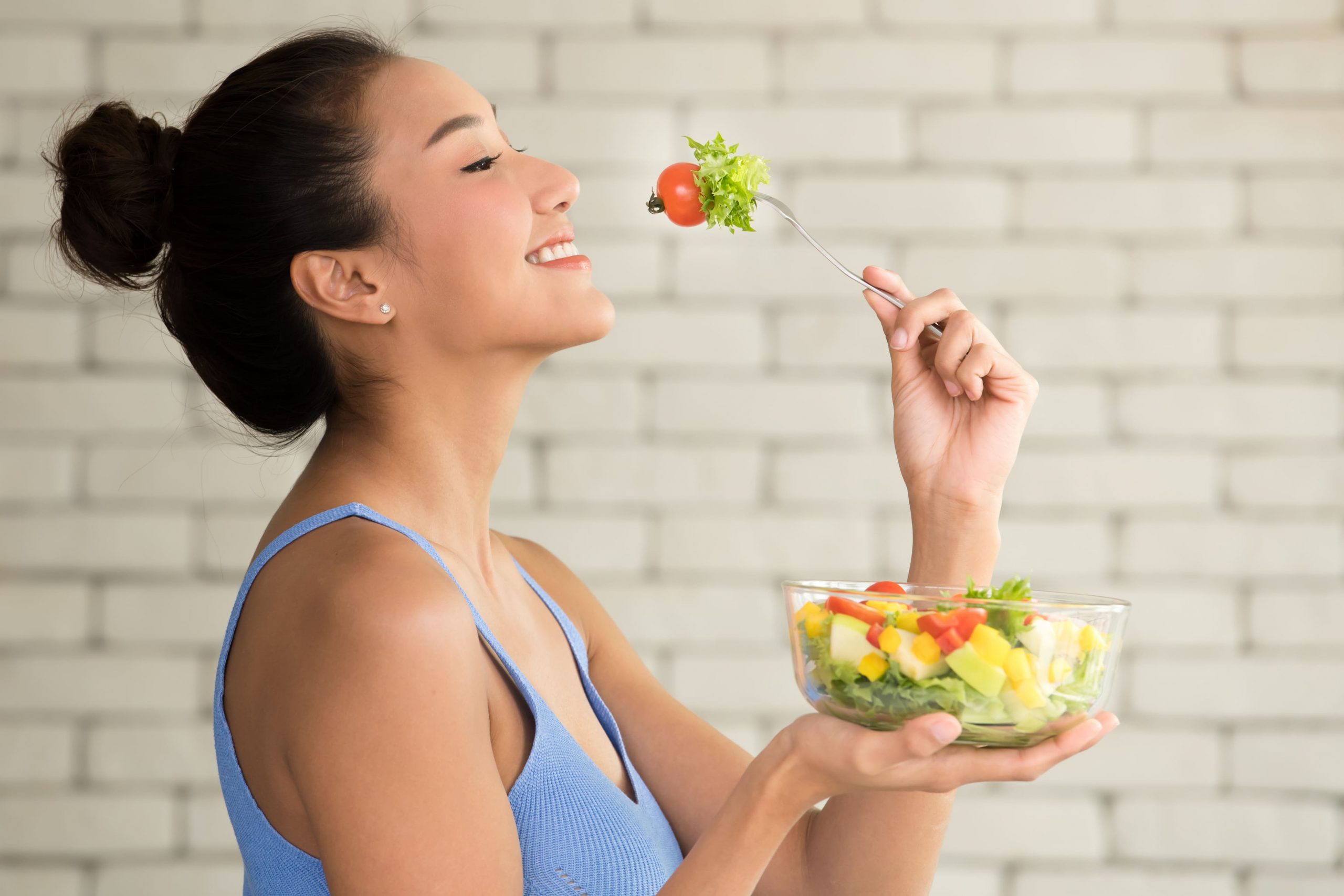When we think about improving the health of our hair, skin, and nails, our first thought may be to head to the beauty counter. Products promise to strengthen our nails, lengthen our hair, and keep our skin looking refreshed.
However, you may want to take a detour to the supermarket. What you put in your body may be just as important as what you put on it.
According to Alain Michon, the medical director at the Ottawa Skin Clinic and a board-certified medical professional with the American Academy of Aesthetic Medicine, “Your skin and body will be a reflection of what you’re putting in your body.”
But is it really possible to eat your way to better, healthier hair, skin, and nails? Let’s explore what research and three experts have to say.
Hair, skin, and nails are impacted by what we eat, but the research is still evolving and, at times, mixed.

Hair
Some studies suggest that a Mediterranean diet rich in raw vegetables and fresh herbs, as well as diets high in protein and soy, may be helpful for non-scarring alopecia.
Research indicates that women who consume low-glycemic diets rich in complex carbohydrates, vitamins A, B, and C, and minerals like zinc and magnesium might experience less hair loss during menopause.
Limiting the intake of mercury-rich tuna could potentially reverse hair loss in early menopause.
Micronutrient deficiencies, such as diets lacking biotin, vitamins A and C, and zinc, could affect hair health.
Skin and Nails
Eating a plant-based diet may benefit skin barrier health and function.
However, there isn’t enough research to conclude whether diet could prevent signs of aging.
Nails, being keratin-rich, are affected by nutrition. Nutritional deficiencies, such as calcium or iron, could affect nail growth.
Micronutrient deficiencies, like biotin, vitamins A and C, and zinc, may lead to less healthy nails and skin.
To improve hair, skin, and nail growth, consider incorporating these foods into your diet:
- Fatty fish, such as salmon, herring, and mackerel, are rich in omega-3 fatty acids and promote skin and hair health.
- Sweet potatoes are packed with beta-carotene (a precursor for vitamin A) that promotes keratin production and skin health.
- Nuts and seeds, like sunflower seeds, almonds, and walnuts, provide biotin, protein, and vitamin E, which combat oxidative damage and inflammation.
- Avocados, are rich in healthy fats and nutrients like vitamin C, vitamin A, and vitamin E, essential for skin and nail health.
- Dark, leafy greens, including spinach, kale, and collard greens, are loaded with nutrients beneficial for hair, skin, and nails.
- Oysters, an excellent source of zinc, are crucial for hair growth and tissue repair.
- Water-rich foods like cucumbers, watermelon, and lettuce, contribute to hydration and overall skin health.
On the other hand, it’s wise to moderate or avoid certain foods:
- Alcohol, which can dehydrate the body and affect skin and nail health.
- Ultra-processed foods, which may cause inflammation and harm the skin and nails.
- Ultra-sweetened drinks, such as sugary diets have been linked to skin aging.
While supplements can help with hair, skin, and nail growth, it’s essential to be cautious and consult a healthcare provider. They should not replace a diet rich in healthy foods.
A vegan diet can also support hair, skin, and nail health by incorporating nuts, seeds, legumes, fruits, vegetables, and plant-based sources of iron.
Remember, no food is entirely off-limits unless you have allergies or intolerances. However, moderation